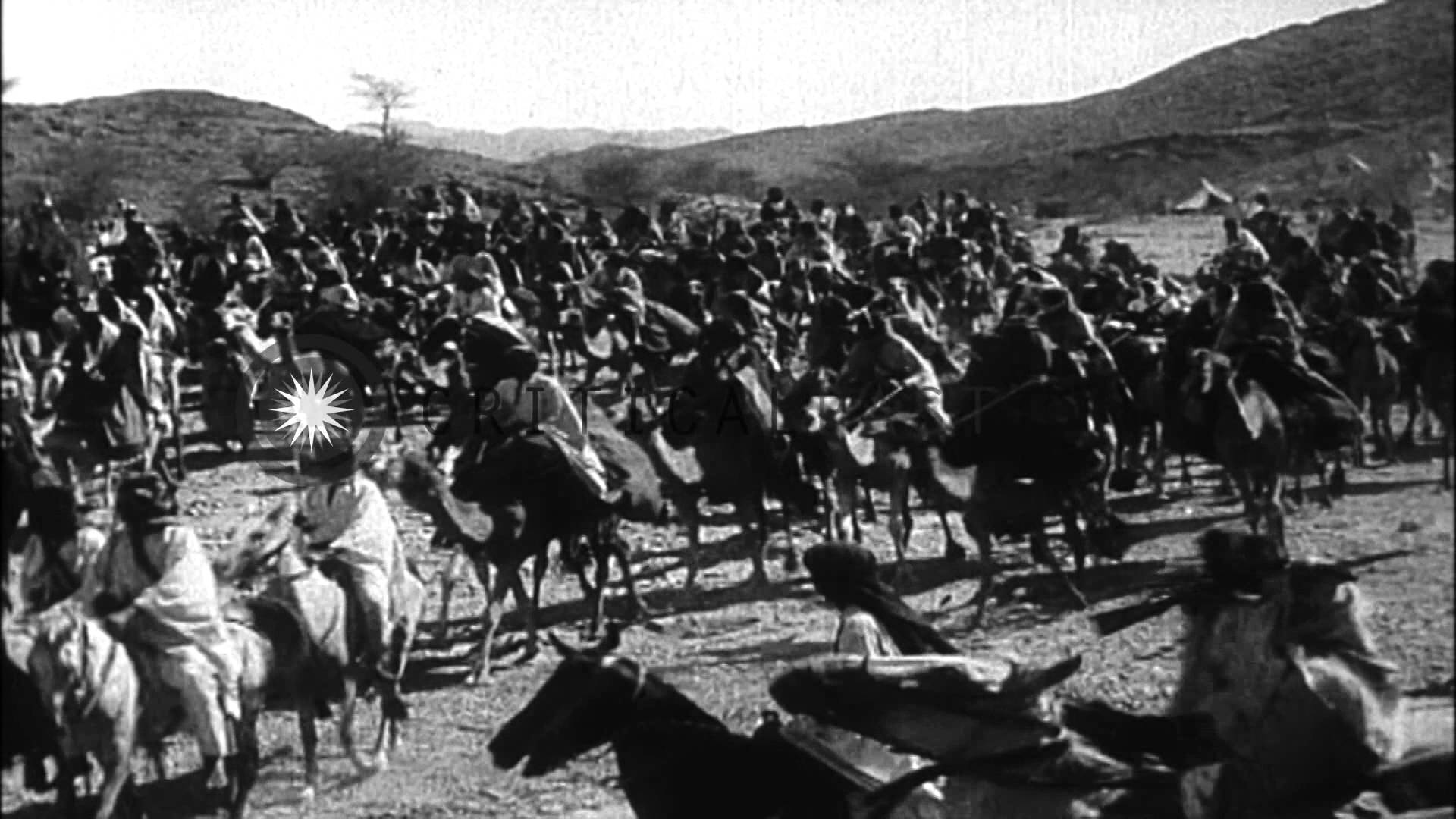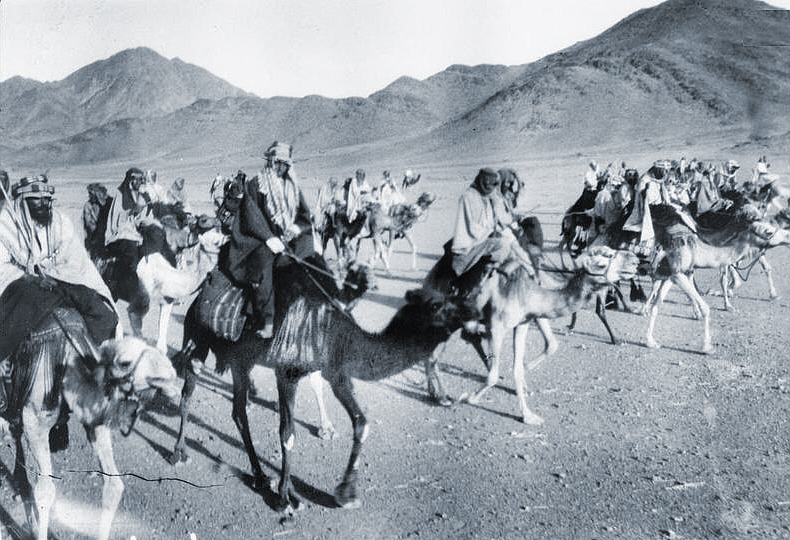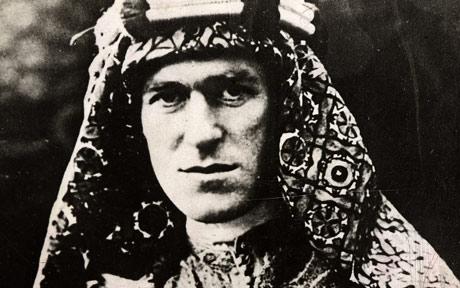Lawrence Seeks Leading Role
British Eye Palestine; Seek Jewish Support
Special to The Great War Project
(4-9 December) As winter approaches in the Middle East a century ago, the British are divided on how to manage what has come to be called “the Arab Revolt.”
The debate between the British command in London and the British intelligence operation in Cairo focuses on how the British should manage their participation in the war in Arabia.

Arab Revolt underway in the Middle East.
Some British military leaders argue in favor of “a large-scale military intervention” in Arabia.
Others – and this includes Captain T.E. Lawrence – want the British to take a command role of a large Arab force.
Lawrence makes a strong argument against a large British force in Arabia.
He makes no secret of his preference, and he uses every argument he can to carry the day.
In late November a century ago, Lawrence writes a four-page memorandum describing the situation in the Hejaz, the central province of Arabia. This memo is “so blunt and shorn of niceties,” writes historian Scott Anderson, “that it left no room for misinterpretation.

Arabs fighting the Arab Revolt, with Lawrence riding camel in the foreground left.
“There is probably no document,” Anderson continues, “that more profoundly influenced the British war effort in Arabia.”
Anderson writes that Lawrence “knocked down virtually every possible argument for a large Allied military presence in Arabia.”
One of Lawrence’s arguments offers an unjaundiced evaluation of Britain’s military posture in Europe.
“On the Western Front,” Anderson writes, “the British were now doing a majority of the fighting – and dying – as a shattered and depleted French army tried to rebuild itself.”
The battles of the Somme and Verdun are taking up the full attention of the British war effort.
British commanding General Sir Douglas Haig “had repeatedly and futilely hurled his army against the German trench works along the river Somme; the 400,000 dead and wounded at the Somme were double that suffered by the French.”
Lawrence argues that the British army is simply too depleted to mount a major offensive in Arabia.
Lawrence’s document is nothing less than “incendiary,” writes Anderson. It plays well within the British War Committee in London.

The legendary Lawrence of Arabia — T.E.Lawrence.
In this debate, Lawrence comes out the winner.
In the meantime, the British cast their eyes on another part of the Middle East — Palestine.
Many British diplomatic and military figures turn their attention to Palestine, to the possible creation of “a Jewish enclave” there.
For some British diplomats, they argue that this would end a two-thousand year wrong and return “the ancient tribe of Israel to the Holy Land.”
“This view had taken on new passion and urgency after the massacres of the Armenians,” which were carried out by the Ottoman Empire in 1915.
For some British leaders, this ongoing atrocity by “the Ottoman Empire had proven it could never again be trusted to protect its religious minority populations.”
The goal, argues some British leaders, is to make sure that when the war ends, Palestine would be taken from the Ottomans “and the failure of the Crusades made right.”
Palestine is not only a religious issue for the British.
At this moment in the war, a century ago, the problem for many influential Jewish groups is Britain’s ally in the war – Russia. The Tsar’s Russia is notoriously anti-Semitic. There is no trust between the Jewish world and Russia.

British advance in Palestine.
A debate is emerging about the political fate of Palestine. Some Jewish leaders – especially in the United States — advocate a Jewish homeland in Palestine. with an eye to the possibility that it could be influential in persuading the U.S. to get into the war.
